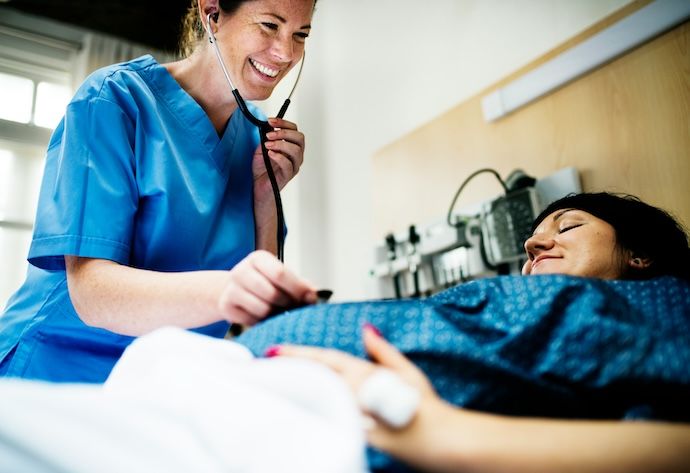Advanced Birth Simulation Training for Midwifery Students
New Simulationslabor at Hochschule Osnabrück offers groundbreaking training for midwives with state-of-the-art simulators
The field of midwifery is witnessing a significant leap forward with the introduction of high-tech simulation training. At the Hochschule Osnabrück, a pioneering Simulationslabor (simulation laboratory) has been established, providing future midwives with a unique and immersive learning environment. This innovative approach to midwifery education is not only a testament to the evolving nature of medical training but also a significant step towards enhancing maternal and neonatal care.
The Simulationslabor at Hochschule Osnabrück is a state-of-the-art facility, equipped with advanced tools and technology to mimic real-life birthing scenarios. It includes three demonstration rooms, two simulation delivery rooms, and an apartment setting. This diverse setup allows students to experience a range of birthing situations, from standard deliveries to complex emergency scenarios.
The centerpiece of this training facility is the use of computer-controlled full-body simulators. These simulators are designed to replicate various stages of labor and delivery, including potential complications. This hands-on experience is invaluable for students, providing them with a safe environment to practice and hone their skills before they face real-life situations.
 Photo by Dragos Gontariu
Photo by Dragos Gontariu
The establishment of the Simulationslabor represents a significant investment in the future of healthcare education. The Hochschule Osnabrück has invested approximately 400,000 Euros, with an additional 500,000 Euros contributed by the Lower Saxony Ministry of Science. This funding underscores the importance placed on advanced training and education in healthcare, particularly in a field as critical as midwifery.
President Andreas Bertram, during the opening ceremony, highlighted the importance of such a facility. He emphasized that the Simulationslabor is not just a technological marvel but a crucial space for practical, hands-on learning. This investment signifies a commitment to improving the quality of education for midwifery students, ensuring that they are well-prepared to handle the complexities of childbirth.
The introduction of simulation labs in midwifery education is a game-changer. It allows students to experience and manage a wide array of birth scenarios, including emergencies, in a controlled environment. This practical approach is crucial in building confidence and competence in future midwives.
Moreover, the Simulationslabor aligns with the global trend of incorporating simulation-based learning in medical education. It offers a realistic, immersive experience that bridges the gap between theoretical knowledge and practical skills. This form of training is particularly beneficial in midwifery, where understanding the nuances of childbirth and being able to react swiftly and effectively in different situations is paramount.
The simulated experiences provided in the Simulationslabor are designed to prepare students for the realities of the birthing process. The comprehensive setup, including an apartment-like setting, ensures that students are not just trained in clinical aspects but also in providing care in different environments. This holistic approach is essential in preparing well-rounded healthcare professionals.
The establishment of the Simulationslabor at Hochschule Osnabrück marks a significant advancement in midwifery education. By integrating sophisticated simulation technology into the curriculum, the institution is setting a new standard in healthcare training. This innovative approach not only enhances the learning experience for students but also promises to improve outcomes for mothers and babies. As we embrace technology in various aspects of our lives, its application in healthcare education, particularly in fields like midwifery, is both timely and crucial. This initiative serves as a model for other institutions worldwide, highlighting the importance of investing in advanced training tools to prepare the next generation of healthcare providers.
Source: NDR





